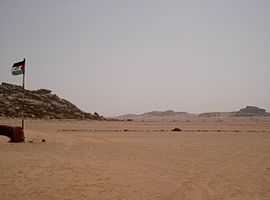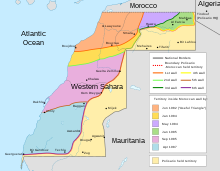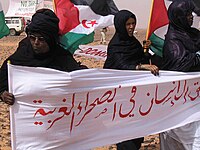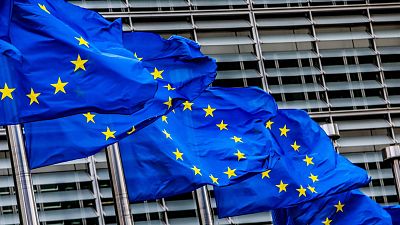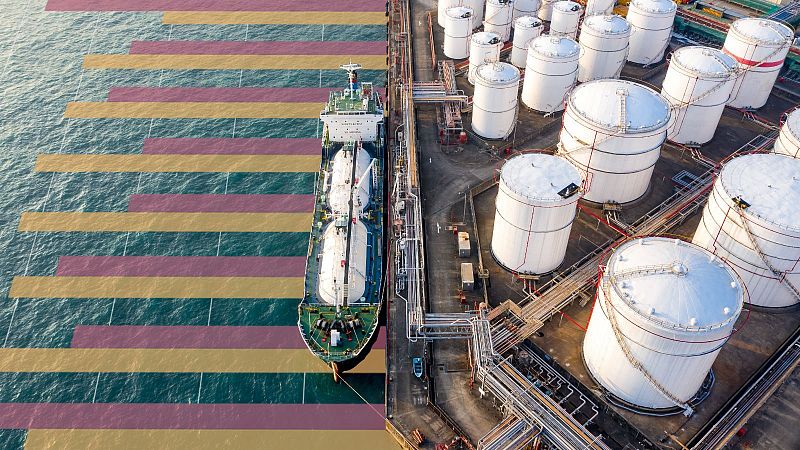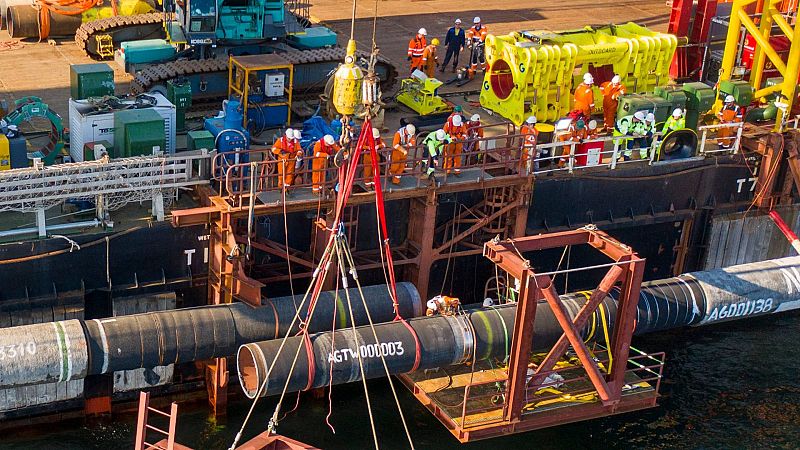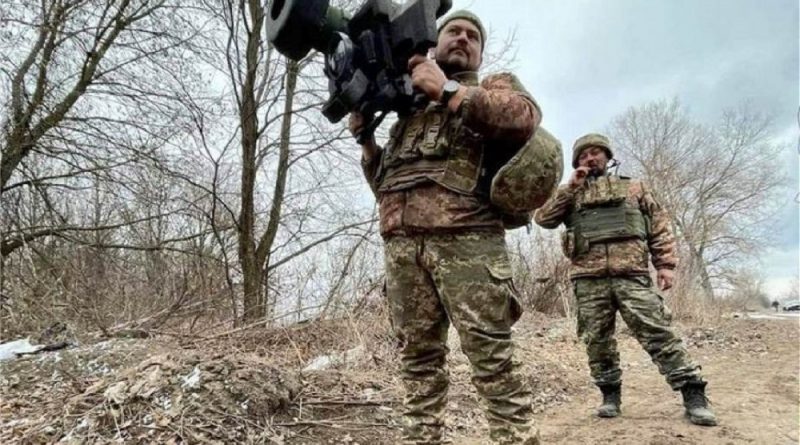Montuno
...como el Son...
Society
Western Sahara, the Spanish turn, and the unknowns of the future :
It was one more province of Spain and has been waiting for decades for the self-determination referendum promised by the United Nations, but according to the suddenly turn of Spanish government, the autonomy proposed by Morocco seems to be its most "serious, realistic and credible" future alternative for Western Sahara.
A turn to 40 years of positioning with respect to the former colony that raises many questions about the future of the territory, but also about respect for International Law and the consequences in bilateral relations with the rest of the Maghreb
Today - 11:16 CEST
Madrid
“The decision is only understood as the price that Spain has had to pay to restore its bilateral relations with Morocco ”, reflects Abdula Arabi, Delegate of the Polisario Front for Spain, “and we are not against it, we understand that the two countries are obliged to be understood. But even if a country can pronounce itself for or against a solution, this does not change the political and legal situation in Western Sahara at all”.
This situation passes through the framework of International Law and the United Nations, where the question of the Sahara continues to be treated as that of a territory pending decolonization. "Absolutely nothing is going to change except that Spain is no longer going to be able to play any constructive role in the search for a peaceful, just and lasting solution," warns Sidi Mohamed Omar, who is the voice of the Saharawi people at the UN. "Furthermore, this position will encourage Morocco, which will have no incentive to get involved in the peace process and will further complicate the task of the Secretary General's special envoy, Steffan de Mistura", adds who is also the coordinator with MINURSO and doctor in conflict resolution.
From a legal point of view, Spain, by continuing to be recognized as the administering power, is obliged to protect the Saharawi population and promote the right to self-determination, but "it is doing just the opposite because autonomy equals integration, and supporting it is support the armed occupation”, reflects the professor of International Law at the University of the Basque Country Juan Soroeta. “It is serious because Spain explicitly says that it supports the violation of International Law, we will see what face the government will show if in a few months the European Justice confirms the cancellation of the fishing and agriculture agreements with Morocco because the Sahara does not belong to it.”
Jorge Dezcallar is one of the most prestigious diplomats in our country. "I was very surprised to learn of something like this through a statement from the Royal Palace of Morocco citing a letter from the President of Spain that was from four days before... I think things have not been explained well," recalls the former ambassador in Rabat for four years. “You have to have good relations, the problem is at what price and what degree of trust do you put in the other party and here it has seemed that the pressure from Morocco has led to this change in attitude, which projects an image of weakness of our country".
Ceuta, Melilla, and the Algerian partner
He also does not like that there are those who interpret that Morocco renounces its historical claim on Ceuta and Melilla ("they will never give up, perhaps the issue will be stopped for two or three years but that has a very clear expiration date") and warns of the possible effect on the in the other great power of the Maghreb (“the relationship with Algeria has obviously known better times than the current one”).
Algeria has already called its ambassador to our country for consultations and some point to gas supply as the next field in which a response from the Maghreb country could arrive. For Gonzalo Escribano, director of the Energy and Climate Program of the Elcano Royal Institute, "Algeria has always been characterized by fulfilling the contracts signed in the long term", and "in the medium term Italy will continue to be a priority partner for Algeria as it already is".
Realpolitik versus referendum
Gas, the relationship with Algeria and Morocco, the future of Ceuta and Melilla, Spain's historical responsibility with Western Sahara... Everything has moved with a decision that for some, such as Ambassador Dezcallar, has not been known to tell but can understand by realism: “Morocco is never going to organize the referendum, and there is something called realpolitik because the world of ideals is one thing and the world of realities is another”; while for others it does not contribute anything because the solution has been on the table for a long time: "It is very simple: there is a specific agreement between the parties to make a referendum with this census", claims Professor Soroeta. "The census is already done by the UN, but the referendum is not held because France vetoes it." If our neighboring country stopped doing it, he concludes, "you vote and the problem is over"
https://cadenaser.com/2022/03/26/sah...tas-de-futuro/
Western Sahara, the Spanish turn, and the unknowns of the future :
It was one more province of Spain and has been waiting for decades for the self-determination referendum promised by the United Nations, but according to the suddenly turn of Spanish government, the autonomy proposed by Morocco seems to be its most "serious, realistic and credible" future alternative for Western Sahara.
A turn to 40 years of positioning with respect to the former colony that raises many questions about the future of the territory, but also about respect for International Law and the consequences in bilateral relations with the rest of the Maghreb
Today - 11:16 CEST
Madrid
“The decision is only understood as the price that Spain has had to pay to restore its bilateral relations with Morocco ”, reflects Abdula Arabi, Delegate of the Polisario Front for Spain, “and we are not against it, we understand that the two countries are obliged to be understood. But even if a country can pronounce itself for or against a solution, this does not change the political and legal situation in Western Sahara at all”.
This situation passes through the framework of International Law and the United Nations, where the question of the Sahara continues to be treated as that of a territory pending decolonization. "Absolutely nothing is going to change except that Spain is no longer going to be able to play any constructive role in the search for a peaceful, just and lasting solution," warns Sidi Mohamed Omar, who is the voice of the Saharawi people at the UN. "Furthermore, this position will encourage Morocco, which will have no incentive to get involved in the peace process and will further complicate the task of the Secretary General's special envoy, Steffan de Mistura", adds who is also the coordinator with MINURSO and doctor in conflict resolution.
From a legal point of view, Spain, by continuing to be recognized as the administering power, is obliged to protect the Saharawi population and promote the right to self-determination, but "it is doing just the opposite because autonomy equals integration, and supporting it is support the armed occupation”, reflects the professor of International Law at the University of the Basque Country Juan Soroeta. “It is serious because Spain explicitly says that it supports the violation of International Law, we will see what face the government will show if in a few months the European Justice confirms the cancellation of the fishing and agriculture agreements with Morocco because the Sahara does not belong to it.”
Jorge Dezcallar is one of the most prestigious diplomats in our country. "I was very surprised to learn of something like this through a statement from the Royal Palace of Morocco citing a letter from the President of Spain that was from four days before... I think things have not been explained well," recalls the former ambassador in Rabat for four years. “You have to have good relations, the problem is at what price and what degree of trust do you put in the other party and here it has seemed that the pressure from Morocco has led to this change in attitude, which projects an image of weakness of our country".
Ceuta, Melilla, and the Algerian partner
He also does not like that there are those who interpret that Morocco renounces its historical claim on Ceuta and Melilla ("they will never give up, perhaps the issue will be stopped for two or three years but that has a very clear expiration date") and warns of the possible effect on the in the other great power of the Maghreb (“the relationship with Algeria has obviously known better times than the current one”).
Algeria has already called its ambassador to our country for consultations and some point to gas supply as the next field in which a response from the Maghreb country could arrive. For Gonzalo Escribano, director of the Energy and Climate Program of the Elcano Royal Institute, "Algeria has always been characterized by fulfilling the contracts signed in the long term", and "in the medium term Italy will continue to be a priority partner for Algeria as it already is".
Realpolitik versus referendum
Gas, the relationship with Algeria and Morocco, the future of Ceuta and Melilla, Spain's historical responsibility with Western Sahara... Everything has moved with a decision that for some, such as Ambassador Dezcallar, has not been known to tell but can understand by realism: “Morocco is never going to organize the referendum, and there is something called realpolitik because the world of ideals is one thing and the world of realities is another”; while for others it does not contribute anything because the solution has been on the table for a long time: "It is very simple: there is a specific agreement between the parties to make a referendum with this census", claims Professor Soroeta. "The census is already done by the UN, but the referendum is not held because France vetoes it." If our neighboring country stopped doing it, he concludes, "you vote and the problem is over"
https://cadenaser.com/2022/03/26/sah...tas-de-futuro/


